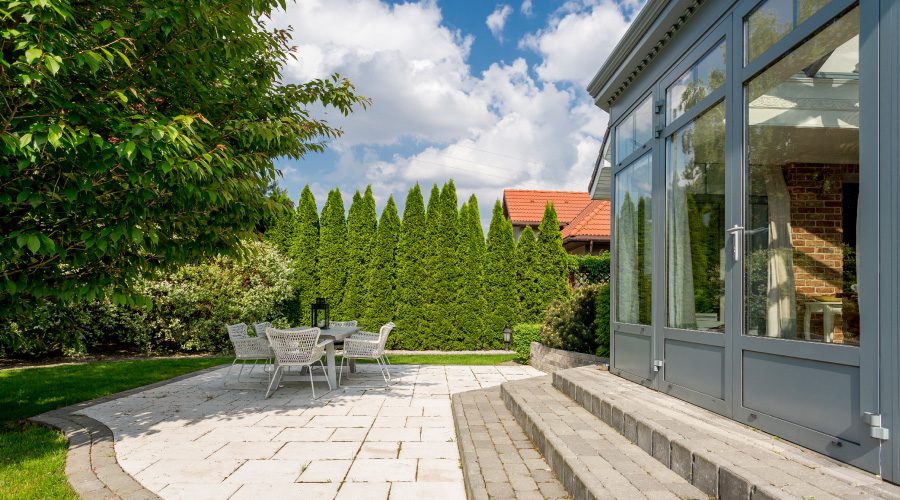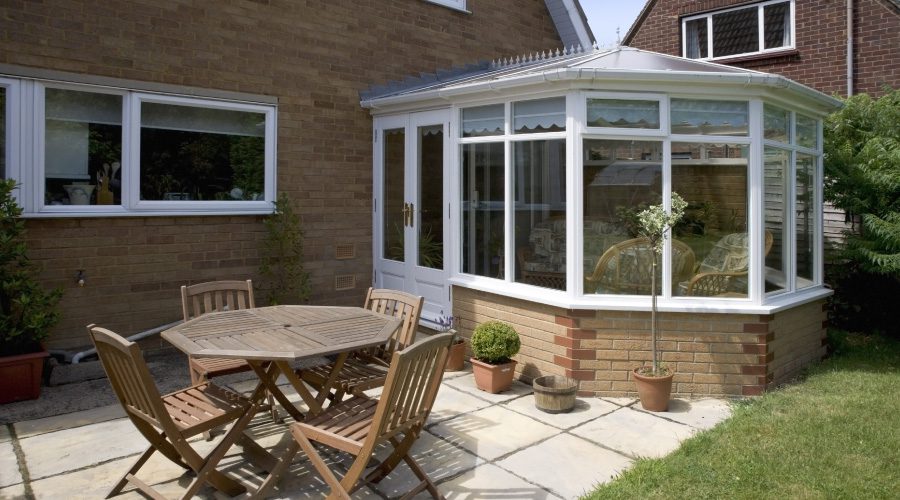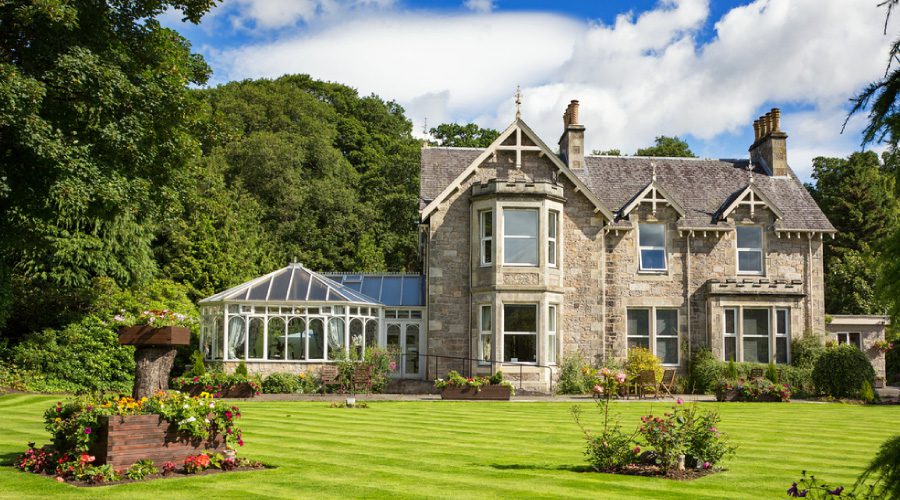25th January 2024
Disclosure: This post contains affiliate links, including Amazon Associate links, through which I earn from qualifying purchases at no extra cost to you.
I only recommend products I genuinely believe in. Visit my Privacy Policy page for more information.
Conservatories and orangeries are often mistaken for one another, and perhaps for good reason! Both are extensions onto homes; both have glass panes, are all on one level, and can be used for similar reasons. So, when it comes to the confusion between orangery vs conservatory – what are the differences? Let’s break this all down.
What is an orangery?
One of the most common misconceptions about orangeries is that they are, in fact, small conservatories! It’s common to use the two terms interchangeably.
Simply put, orangeries are brick constructions with large windows. Many also define them by flat roofs and glass lanterns – but these touches are not necessarily as common.
Essentially, orangeries look like seamless additions to the home. They are meant to look as though they were a part of the original architecture. They’re great for blending in with your original aesthetic.
Orangeries are often used to add a little extra space to existing rooms of the home. They are commonly used to extend kitchens, create small study nooks and even home libraries.
It’s also a misconception that orangeries have to be small. Nowadays, orangeries come in all different kinds of shapes and sizes to suit any kind of property!

What are the different types of orangeries?
Generally speaking, most orangeries are made of brick or stone, with glass windows to finish. However, more modern orangeries can arrive in metal and glass, which further contributes to the confusion between orangeries and conservatories!
The lanterns or skylights on orangeries can also arrive in different styles. Edwardian and Victorian, for example, are two particularly ornate choices that many homeowners opt for to add a little opulence.
Get 3 or more Comparable Conservatory Quotes from Trusted Local Companies
What is a conservatory?
Unlike orangeries, conservatories are primarily made of glass! They are typically composed of glass panes all around, held tightly together by metal panes. This, on the whole, makes them far lighter than orangeries.
Conservatories are also less likely to look like natural additions to the home. While they should ideally blend with the architecture and design of the home, they tend to stand out more than orangeries. This type of extension is just as much a physical statement as it is a highly functional space.
Given how bright and open conservatories can be, these buildings are usually used as sitting areas, tea rooms, garden rooms, offices and even ground-floor bedrooms.

What are the different types of conservatories?
Much like orangeries, you can invest in Victorian, Edwardian (or Georgian), and lean-to conservatories. However, you may also see p-shape, gable and t-shape conservatories, too. A reliable installer will help you find the perfect shape and finish for your property!
Given how versatile conservatory materials can be, these extensions tend to come in a wider range of shapes, sizes, and styles compared to orangeries. Therefore, the choice is yours – conservatory vs orangery for flexibility and style?
What is the difference between an orangery and a conservatory?
As you can see, the key differences between orangeries and conservatories are the materials used to make them, their roof styles, and their intended purposes. There are some blurred lines between the two extension standards – and they are interchangeable.
A good way to remember the main differences between an orangery vs conservatory extension is that orangeries are predominantly brick, while conservatories are largely made from glass. Take a look at a few side-by-side images to compare, too!
Should I choose an Orangery or a Conservatory?
Whether you should have a conservatory or an orangery depends on a few things.
First of all, what do you plan on doing with the extension?
If you are looking for an extra functional room in your home, such as a kitchen, study or living quarters, then you might lean more towards an orangery.
Orangery brickwork makes this type of extension more private than the average conservatory – and warmer, too, as they can retain heat more efficiently.
On the other hand, if you are looking for a more open space with great views – and more of a dramatic aesthetic flair – then a conservatory is the way to go.
Conservatories are great for blending indoor and outdoor spaces together. They also tend to be more affordable than orangeries due to how they are built – glass is great value for how versatile a material it can be!
What should I consider before making a decision?
There are a few things to consider before deciding between a conservatory or orangery – or in fact whether a glass extension is the right option for you at all! Here are some of the important things you need to consider…
Get 3 or more Comparable Conservatory Quotes from Trusted Local Companies
What will the extension be used for?
Before deciding on whether you want an orangery or a conservatory, think about what you want the space for. Is it for a more permanent and useful room in your home or a relaxing and open area to read, play, work, etc.?
What is your budget for the project?
You will also need to consider your budget, the space you have available for the new room, and whether or not you will need planning permission. If you are considering getting an orangery, for example, then you are more likely to need planning permission.
Which extension will match the style of your home?
Think of the style of your home, too. Do you want a more subtle extension that looks like it was built with the rest of the house, or do you want something a little different that will modernise your home?
If you are still unsure about whether an orangery or a conservatory is better for you, then speak with at least three different suppliers and installers in your area. They will have the experience and knowledge to guide you based on your location, the layout of your home, and what you plan on doing with the room.

We hoped we have helped!
If you are considering an extension and wasn’t sure whether a conservatory or orangery was the right option for you – we hope you found our guide helpful. Don’t forget to reach out to many different installers and do your research before trusting someone with your extension project!
Friday, October 21st, 2022 in Conservatories, Orangeries